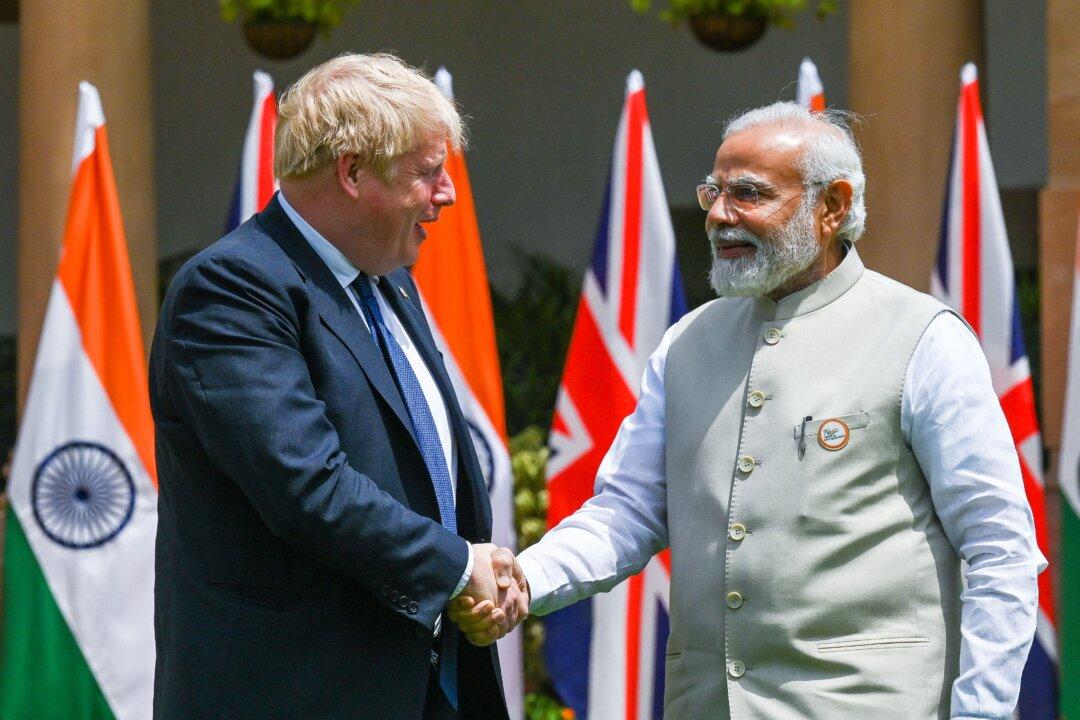Britain will support India to build its own fighter jets in a bid to reduce its reliance on Russian weapon supplies, Prime Minister Boris Johnson said on Friday on a visit to New Delhi.
Johnson also said Britain was also creating an India-specific open general export license to slash delivery times for defence items. Only the European Union and the United States currently have such licences.





